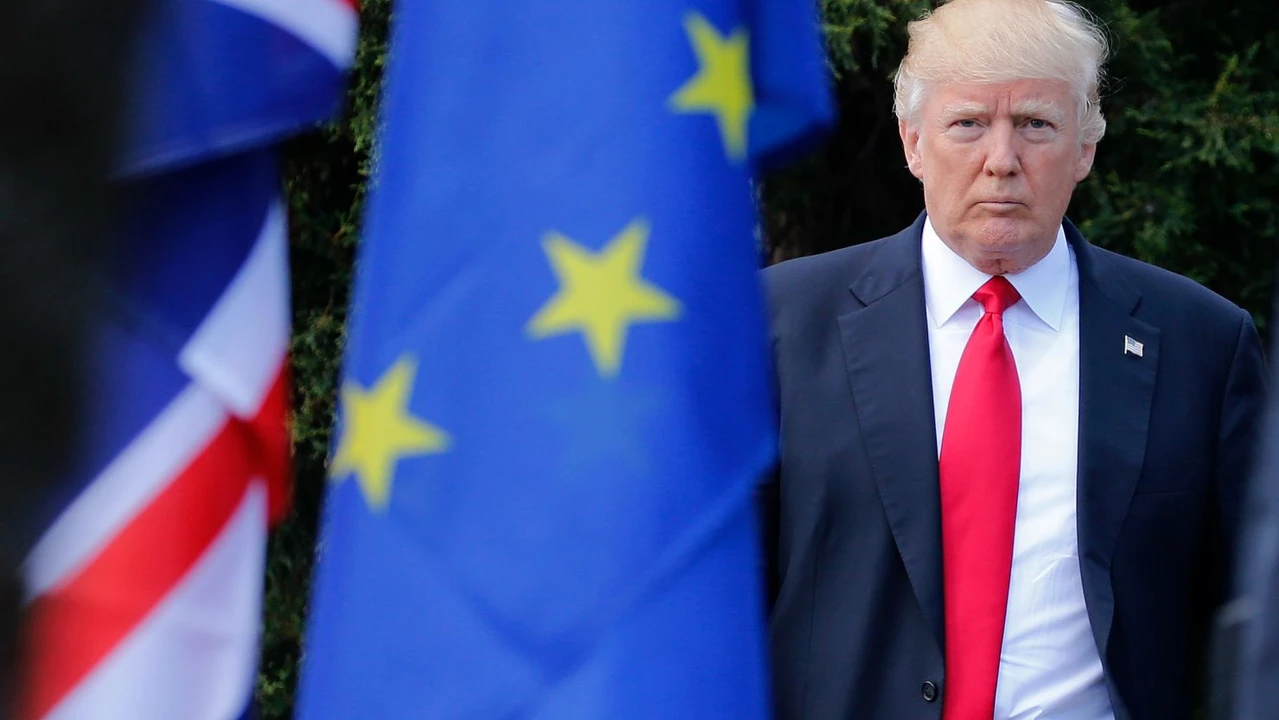European leaders gather in Budapest amid fears over Trump’s foreign policy
 United States President-Elect Donald J. Trump standing next to an European Union Flag. (AFP Photo)
United States President-Elect Donald J. Trump standing next to an European Union Flag. (AFP Photo)
European leaders are set to meet in Budapest on Thursday, confronting the looming impact of Donald Trump’s election as U.S. president on transatlantic relations. The high-level talks, set to last two days, are focused on Europe’s strategic challenges as officials consider the implications of Trump’s return to the White House, especially regarding security, economic stability, and unity across the continent.
Heads of state from the European Union, along with leaders from the United Kingdom, Türkiye, NATO Secretary-General Mark Rutte, and Ukrainian President Volodymyr Zelensky, are attending the European Political Community meeting. The agenda is packed with critical issues — from Russia’s invasion of Ukraine to the broader threat of weakened economic ties with the U.S. — all underscored by the uncertainty Trump’s administration may bring.
“The Europeans really have a knife at their throat,” said Sebastien Maillard, a political analyst at the Jacques Delors Institute. “The election result forces the EU to open its eyes. Maybe it’s in situations like these that things can actually happen.”
Trump’s approach to European allies has raised alarm about a potential reduction in U.S. support for Ukraine, as well as the risk of a new trade war. European leaders are particularly concerned that Trump’s policies could include tariffs on European goods, deepening economic divides.
Following Thursday’s meeting, European Union leaders are scheduled for a Friday summit focused on economic strategies to keep Europe competitive alongside global rivals like the United States and China. The summit will address challenges highlighted in a report by former Italian leader Mario Draghi, warning of economic vulnerabilities. However, whether Europe can unify around crucial priorities — such as funding tools for defense and technological advancement — remains uncertain.
“I don’t think they really prepared for this,” said Guntram Wolff of the Bruegel think tank, pointing to the lack of an EU-wide plan and unresolved tensions between France and Germany. Germany, under Chancellor Olaf Scholz, faces political divisions at home, while French President Emmanuel Macron is also weakened by ongoing political strife. “Without those two, the rest will find it extremely difficult to really advance on anything,” Wolff added.
Hungarian Prime Minister Viktor Orban, a vocal Trump supporter, is hosting the summit, heightening doubts about Europe’s ability to present a unified stance. Orban’s “Make Europe Great Again” slogan for Hungary’s EU presidency has drawn attention for its clear nod to Trump, underscoring his alignment with Trump’s nationalist vision.
Alongside Orban, President Erdogan has also shown strong support for Trump, highlighting a growing faction of nationalist leaders in Europe sympathetic to the U.S. president-elect.
A dinner discussion on Thursday will focus on the future of transatlantic relations, but expectations for a united response are low. Ian Lesser, vice president of the German Marshall Fund of the United States, predicted a “considerable divergence of view,” with nationalist leaders likely welcoming Trump, while others express skepticism.
Lesser suggested Trump might feel closer ties to leaders like Orban or Slovakia’s Robert Fico, who has openly called for an end to the war in Ukraine, even if it requires concessions from Kyiv. Such alliances, Lesser said, could indicate a shift in U.S. engagement with Europe, focusing on sympathetic leaders and distancing others less aligned with Trump’s views.



